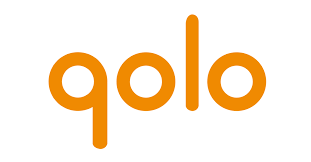What modern companies should demand from a payments provider

After spending years in the payments space, Patricia Montesi was tired of watching companies wrestle with decades-old technology to power money movement. That’s why she co-founded Qolo, a fintech dedicated to simplifying payments with purpose-built solutions that are flexible, adaptable, and future-proof. Now she’s sharing what modern business should consider non-negotiable attributes of a payments provider in 2024 if they want sustainable, scalable growth.
In finance departments and in payments, specifically, needs are never truly met — they only change.
When my co-founders and I started Qolo in 2018, companies were in dire need of two things.
First, they sorely needed modern technology and platforms to replace the legacy systems they had suffered through for decades.
The second and more challenging need was for simplicity. Every time a new payment modality would come out, they were forced to go through another supplier to adopt the capabilities required because their bank couldn’t offer the functionality.
Every time an organization wanted to add a new payment feature, such as push or pull debit or virtual account management, they had to deal with another supplier, another integration, another capital reserve, another bank sponsor to try to piece together the payments ecosystem they wanted.
As time went on, these companies were stuck in this spiderweb of fintech that only added overhead and complexity. They had to figure out how to unify and manage all the payment sources, the system of record, customer service, and reconciliation. They had to build their own infrastructure from scratch. This took their attention away from their customers, their sales, and their marketing.
This means they were forced to spend more, launch slower, and innovate less.
Even today, 49% of surveyed executives at commercial payments clients said they use a combination of banks, fintechs, bigtechs, and non-bank payments providers to address their payments needs, according to Accenture’s 2023 “Commercial Payments, Reinvented” study.
With that understanding of the payments landscape, Qolo set out to create a platform that can handle any payment modality a customer wants. We built it with the future in mind so we can easily add new payment features as they become available without changing our code or our infrastructure. We designed our system to be flexible and adaptable. That’s why we say to stop settling for less and demand more from your payments provider.
Now, fast forward to 2024, and the landscape is vastly improved. Many legacy banks, including KeyBank, have invested in innovation and partnered with fintechs to offer clients purpose-built solutions. But that doesn’t mean companies should stop demanding more.
Because, like I said, needs are never truly met — they only change. So, in the same way I took inventory of the payments landscape before launching Qolo, I want to offer modern companies a few traits they should demand from their payments provider.
This list isn’t exhaustive but will certainly get you thinking about which provider is right for your organization.
Demand scalability
Scalability enables your business to handle a growing number of transactions, users, and payment modalities without compromising performance, security, or reliability. Your provider should help reduce costs, speed up program launches, and empower innovation in your finance operations by offering fast, flexible, and cost-effective payment solutions that can support your growth.
Payments tech modernization has been shown to reduce operating costs by 20% to 30% and bring new products to market in half the time, according to McKinsey’s Operating Model Index, compiled from research at 150 leading financial institutions.
This aspect is crucial considering the commitment you make with a provider may extend for five years or more. It is essential to ensure their services and capabilities not only align with your current business needs but support the evolving demands of your business in the future.
Imagine you’re three years into your agreement and want to leverage a new payment rail or dive into virtual account management to support multiple locations. What happens when you go to your provider and those features are still a year out on its roadmap? If you’re serious about your needs, you end up coding around that inefficiency by adding something new to your tech stack.
Modern companies shouldn’t be handcuffed to innovating on their own.
Demand partnership
Choosing a payments provider is a crucial decision for your business. It can make or break your customer experience, your operational efficiency, and your bottom line. That’s why you should look beyond the price tag associated with a given solution and demand partnership.
A strategic partner in the payments industry does more than provide a solution — they become a dedicated ally throughout the entire journey. From implementation and launch to ongoing maintenance and optimization, they will share their industry knowledge and best practices with you. They will help you avoid common pitfalls and overcome the challenges that may arise along the way.
A true partner will also align their goals with yours. They will understand your vision and strategy, and tailor their solution to your specific needs and preferences. They will collaborate with you to create a seamless and secure payment experience for your customers and your business.
Don’t just rely on the sales pitch or the technical specs. Dig deeper into the details and the outcomes. How easy is it to integrate their solution with your existing systems and processes? How flexible and scalable is their solution to accommodate your future growth and changes? How proactive and responsive is their customer service and support? What happens in the event of performance issues? What happens in the event of an outage? What happens if you need to end the agreement?
Choosing a payments provider is not a one-time transaction but a long-term relationship. That’s why you should demand a partner who will treat you with respect and care, and who will work with you to achieve your goals.
Demand vision
In the rapidly changing payments landscape, you need a partner that keeps pace with the latest innovations. The last thing you want is to be stuck to outdated systems that are not only expensive but challenging to transition away from.
For years, what I saw in the payments world and the legacy players was that the moat they built around themselves was the sheer difficulty of switching providers.
Even if an organization desperately needed new capabilities to power growth, it was simply too hard to give up on an integration that already existed. It was too hard to unwind processes with suppliers. And it was too hard to swallow the years and millions of dollars it would cost to switch banking cores.
If the moat around your offering is, "It's hard to leave us,” you’re not really advancing your industry. You’re not really helping provide value to your customers.
So, when you enter a partnership with a provider, demand they look around the corner and understand what innovation may be necessary to provide value. This is why I admire the work Qolo has done with KeyBank on its new KeyVAM (virtual account management) solution.
It takes vision to take your existing legacy infrastructure, find a technology provider like Qolo, and lay it over the older technology to create an elegant, modern version that empowers an organization.
So, now KeyBank commercial clients can manage transactions from one main account but still have different virtual accounts for each division, branch, or client. This means they can take advantage of a unified account structure, which offers better cash management, enhanced cash flow, and lower account upkeep expenses, while still keeping the accuracy, balance, oversight, and adaptability of a separate account structure.
Imagine what that can do for a CFO and their treasury management. It isn’t even about the cost of the accounts; it’s keeping track of the money and reconciling it and making things simpler. When you remove the inefficiencies associated with legacy money movement, it allows you to grow. It allows you to innovate.
Our mission is to simplify payments, and this partnership with KeyBank and the KeyVAM product does that.
Demand more
Qolo was born out of a necessity to replace outdated legacy systems and to provide a platform capable of handling any payment modality. We strive to meet the changing demands of companies, emphasizing the important traits, like scalability, partnership, and vision.
However, the journey doesn’t end here. Companies should continue to demand more and push their providers to deliver value and innovative thinking. The goal is not just to meet current needs but to anticipate and adapt to future changes. This is the key to thriving in the dynamic world of finance and payments.
This article is an excerpt from our exclusive report, "Finding the balance of payments innovation, scale, and security."

Patricia Montesi is an accomplished business executive with over 20 years of global experience in various industries. She has transformed and scaled complex businesses from start-ups to Fortune 100 companies in roles that included sales, marketing, operations, and technology. She co-founded Qolo in 2018 to better serve the payments industry with innovative, best-in-class technology solutions.

As the leading omnichannel card issuing and payments processor, Qolo is the nexus of banks, card networks, payment rails, customer data, and integrated third-party services. Its next-generation platform offers first-party access to card networks and payments processing, while its advanced ledger delivers insights previously not available on a single platform. Qolo powers businesses wherever speed, security, and flexibility are important, allowing clients to launch innovative payment solutions quickly and efficiently.
Interested in hearing more about payments solutions at KeyBank? Talk to a Payments Advisor today.